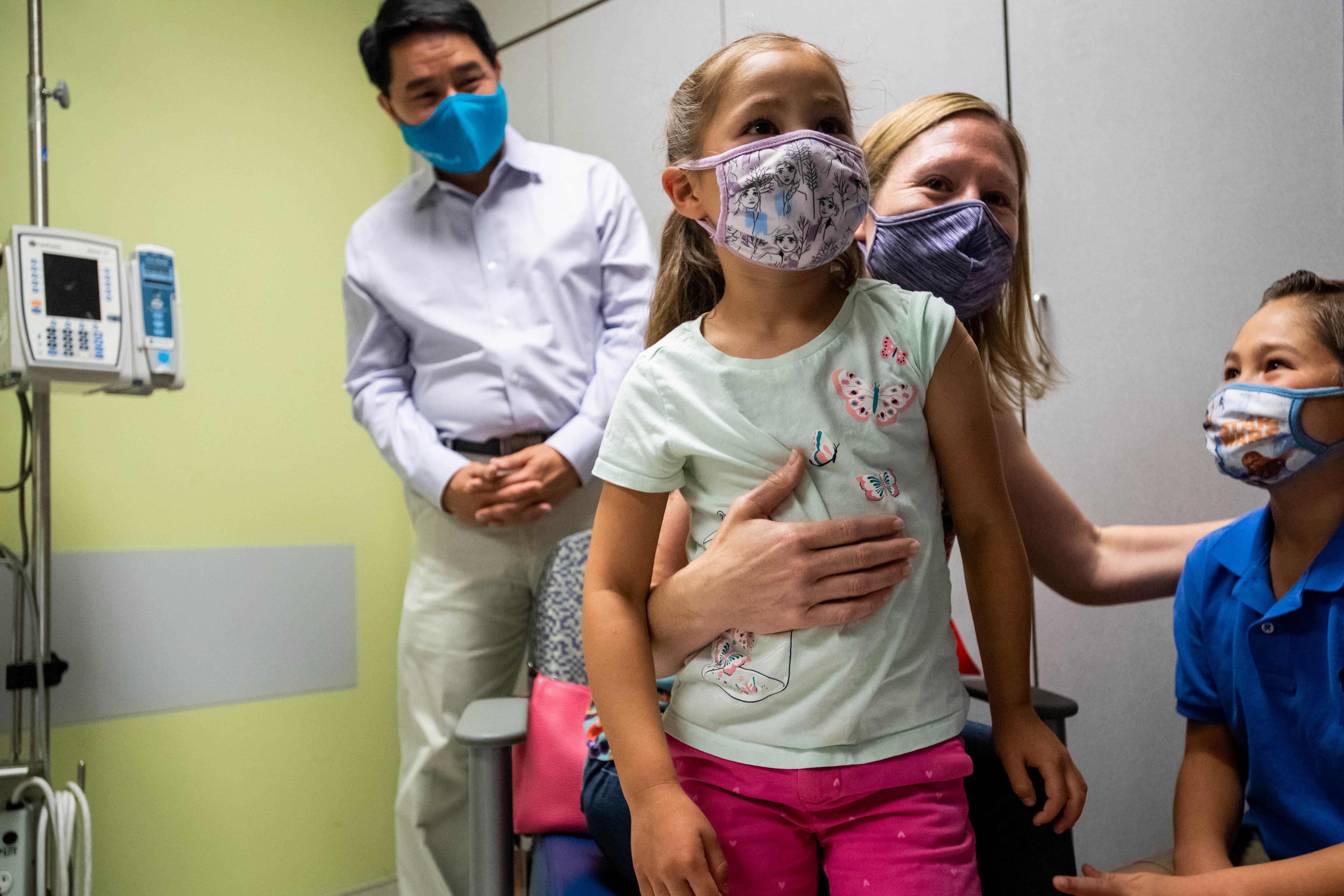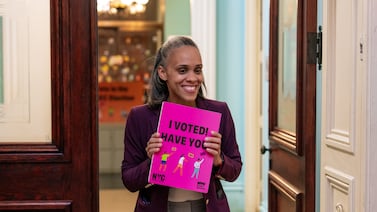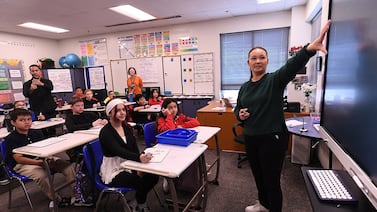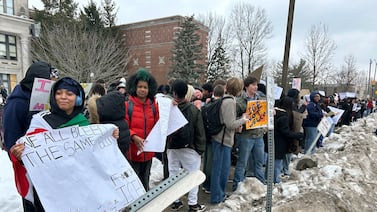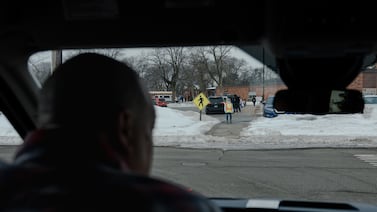Ahead of the expected authorization of the COVID vaccine for children ages 5 to 11, the Biden administration says the shots will be distributed to school-based clinics as well as pediatricians’ offices, pharmacies, and other sites.
The federal government will also launch a program helping school districts start school-based vaccination sites by “matching” districts with vaccine providers, officials said Wednesday.
“Our planning efforts mean that we will be ready to begin getting shots in arms in the days following a final CDC recommendation,” the White House said in a statement.
The Biden administration’s plan signals schools will continue to play a role in completing a massive challenge of both logistics and persuasion: vaccinating the 28 million children ages 5-11 across the country. A new federal campaign “to increase vaccine confidence” will involve schools, as well as local health departments and faith leaders.
School-based clinics have already vaccinated many students 12 and up. In New York City, the country’s largest school system, officials said vaccinations were offered at every campus with eligible students during the first week of school. In Newark, pop-up clinics in schools helped quickly increase its youth vaccination rate this summer. In Colorado, officials found school clinics had the welcome side effect of sometimes drawing in students’ relatives, too.
“The kids make the decision that this is the right thing for them to do, and then they bring the family along,” Dr. Sonja O’Leary, a pediatrician and medical director of Denver Health’s school-based health centers, said in May.
Elsewhere, though, vaccine pushes have been less well received. Tennessee’s health department, for instance, stopped vaccine outreach targeting minors after Republican lawmakers balked, dubbing it a form of peer pressure.
Polling shows that a significant share of parents are hesitant to vaccinate their child. A September poll found that only a third of parents of children ages 5-11 said they would vaccinate their child right after the shot is approved. Another third said they would “wait and see,” and the final third said they would either not vaccinate their child or only do so if required. Among children 12-17, the same poll found that about half had received at least one dose of the vaccine.
Polling shows vaccine skepticism is strongest among Republican parents, but that there is some hesitancy among parents of all political leanings.
Most parents also oppose school vaccine requirements, but many believe that schools should encourage vaccination.
The Biden administration’s plan does not mention making vaccines mandatory for school attendance. California recently announced that it would eventually require the vaccine for students who attend school in person.
Last month, U.S. Education Secretary Miguel Cardona said he supported vaccine requirements for teenagers, for whom the Food and Drug Administration has fully approved the vaccine. “It’s the best tool that we have to safely reopen schools and keep them open,” he said. “We don’t want to have the yo-yo effect that many districts had last year, and we can prevent that by getting vaccinated.”

